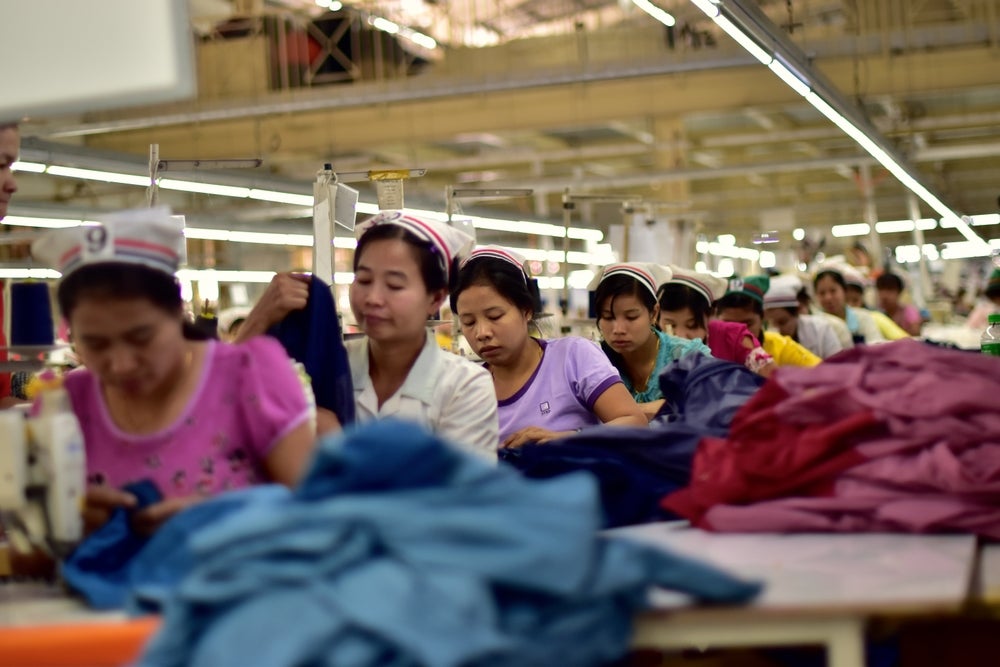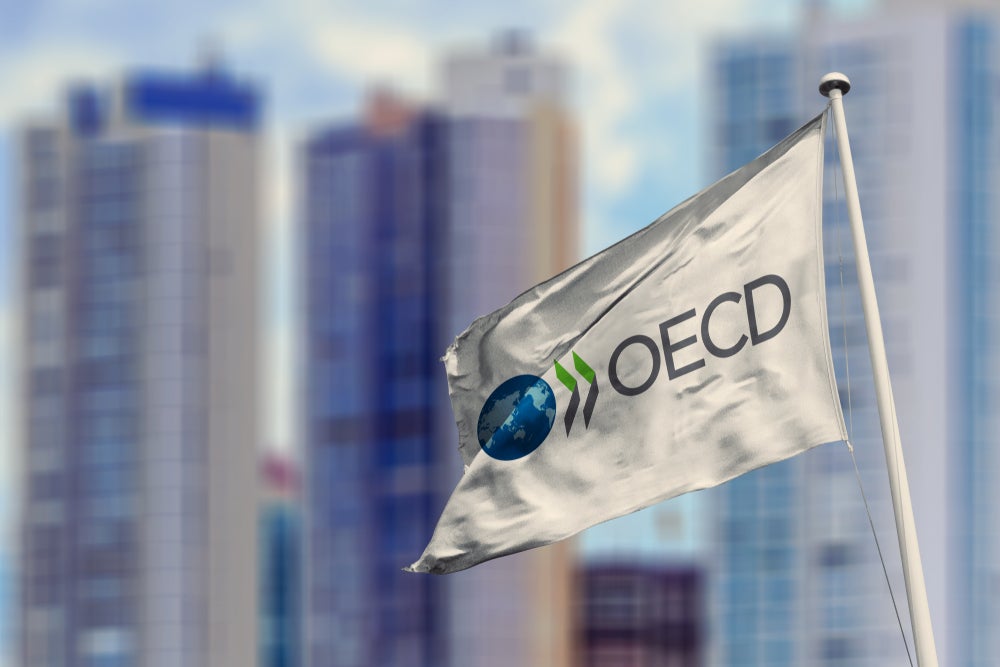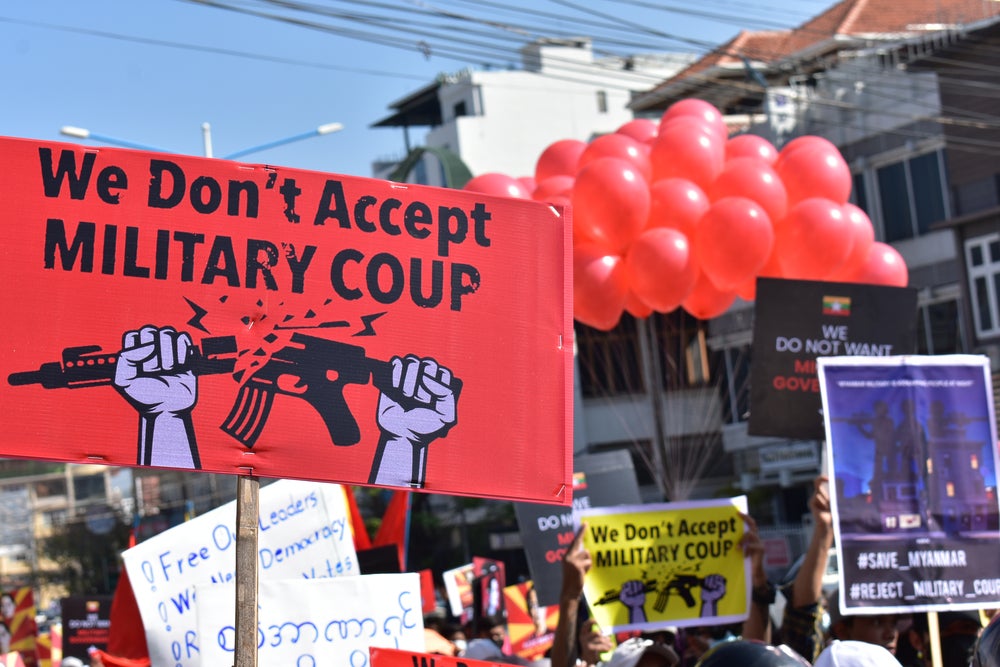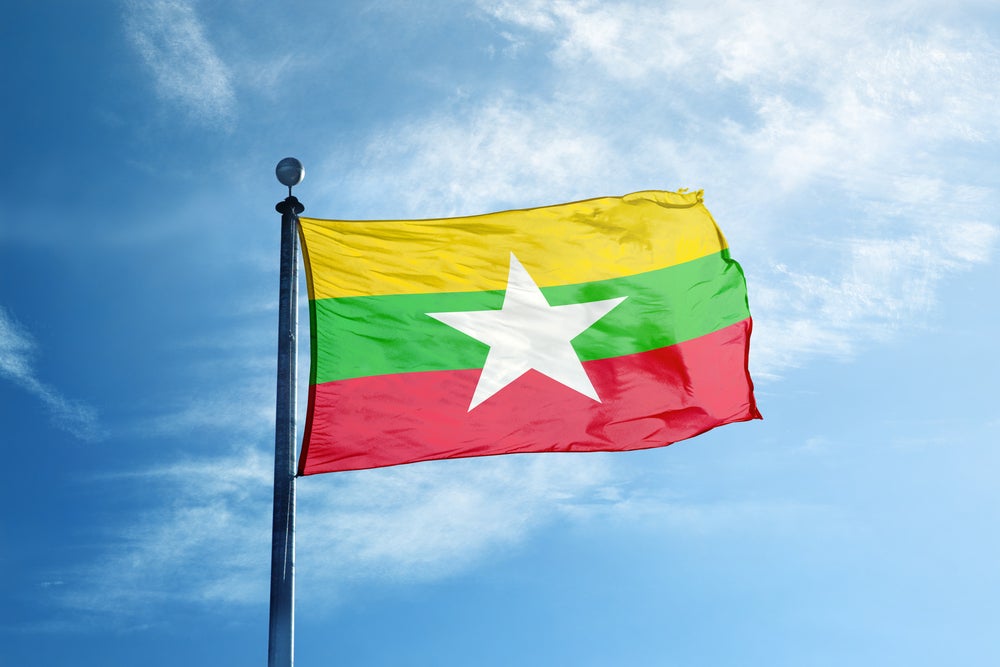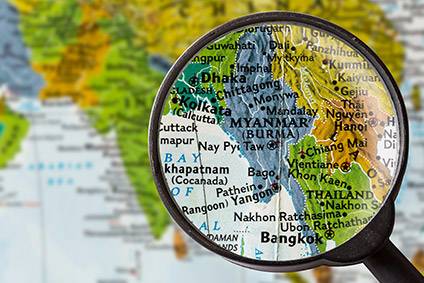
An independent investigation into Bestseller’s activities in Myanmar has found the fashion company complied with sanctions and has not cooperated with the military, with the retailer being urged to resume production as a “humanitarian catastrophe” looms.
The Danish fashion company commissioned the independent report and evaluation of its due diligence to ensure responsible production in Myanmar. It has been put together by an independent lawyer Jonas Christoffersen, who previously spent 11 years as the director of the Danish Institute for Human Rights.
Bestseller sources from 36 factories in Myanmar and had suspended new orders from the country back in March, urging the EU to develop clear guidelines on how companies should conduct themselves when economic sanctions are imposed on sourcing regions.
The United Nations’ recommendations and the European Union’s sanctions specifically preclude trade with companies that are owned by the military of Myanmar. Significantly, there has been a discussion regarding whether the Ngwe Pinlae industrial zone is economically controlled by the military’s companies.
In a previous statement, Bestseller said: “We have been criticised for trading with three specific factories that were previously mentioned in a United Nations report. We have continued to do business with them because – after thorough investigation – none of the parties involved have concrete evidence or reason to believe that these factories have relations with or are friendly towards the military. At the first sign of genuine evidence, we would stop immediately – just as our own policies require. There is no doubt that the easiest thing in the world would be to stop all business – especially when we are only talking about three factories – but we feel that we have a responsibility to try and investigate the situation thoroughly and establish what is really going on, and subsequently try to improve or remedy the situation. That is what is expected of us as global corporate citizens and out of respect for the people involved, and that is what we believe is the right and responsible thing to do.”
The group proceeded with an investigation into the factories.
How well do you really know your competitors?
Access the most comprehensive Company Profiles on the market, powered by GlobalData. Save hours of research. Gain competitive edge.

Thank you!
Your download email will arrive shortly
Not ready to buy yet? Download a free sample
We are confident about the unique quality of our Company Profiles. However, we want you to make the most beneficial decision for your business, so we offer a free sample that you can download by submitting the below form
By GlobalData“The report confirms our earlier research that the industrial zone is not owned by the military,” says Bestseller sustainability manager Dorte Rye Olsen.
The report dealt with three main questions:
Has the military in Myanmar received payments from the companies where Bestseller has had goods produced? (Specifically with regards to three of the 36 factories, which Bestseller has sanctioned for production).
“Based on our findings, we do not believe that there are reasonable grounds to assume that the three factories are located on plots of land that are owned, directly or indirectly, by the military. Neither do we believe that there are reasonable grounds to assume that the three factories have paid administration fees, directly or indirectly, to the military.”
Has Bestseller lived up to its corporate social responsibility, such as completing thorough investigations of the factories’ potential connections to the military?
“We are clearly of the opinion that there is no doubt that Bestseller lived up to their corporate social responsibility in accordance with the highest international standards in relation to their activities in Myanmar. Bestseller reacted very quickly to the report from the UN’s Independent International Fact-Finding Mission, just as Bestseller – when it was later required – continued its thorough investigation with the support of local experts and sources.”
Has Bestseller violated the EU’s sanctions?
“We find that Bestseller have not breached the sanctions from the EU.”
The report additionally underlines that the people of Myanmar are plagued by extreme poverty and that international companies have a clear responsibility to continue to secure jobs in the country.
The report recommends specifically “that Bestseller as quickly as possible resume their activities in Myanmar, as the civilian population has a critical need for foreign investment and trade.”
Christoffersen adds: “It is my assessment that Bestseller has lived up to the UN’s recommendations with regards to conducting responsible business in Myanmar.
“They have fostered decent working conditions in the country and they have lived up to the highest international standards for corporate social responsibility. Bestseller has abided by the EU’s sanctions – including those that the EU enacted recently. The key question now is how to protect a national population where an additional 25% are set to fall below the poverty line. If all Western companies stop trade with Myanmar, we will face a humanitarian catastrophe.”
Bestseller response
Anders Holch Povlsen, CEO and owner, Bestseller, says: “The report confirms that we have lived up to our responsibilities. There should be no doubt about whether we have acted responsibly with regards to the people of Myanmar. For many years, we have worked to improve working conditions, developed social programmes and contributed to the development of a trade union movement in the country. We have condemned the military coup in the strongest terms and we are deeply focused on how we can continue to safeguard the approximately 48,000 employees that work at the factories, which deliver clothes to us.
“Bestseller has conducted business in Myanmar for many years and has completed many social programmes there. The company says it conducts regular due diligence on the 30-plus Myanmar-based factories that are part of its supply chain. This work ensures trade unions can operate effectively, all wages are paid and other central rights are protected.”
Rye Olsen, adds: “We continue undaunted to establish decent working conditions in Myanmar. Since the military coup, we have intensified our regular assessments and we will continue to do so. At the same time, we are in close dialogue with local stakeholders about how we best can handle this complicated situation. Right now, the majority of workers are back at the factories, and they are deeply reliant on wages to pay for food, medicine and the like.
“The report confirms our earlier research that the industrial zone is not owned by the military. We have previously heard, however, that a fee for – amongst other things – garbage collection of a few hundred dollars per year had been paid, and that that money eventually ended in the military’s pockets further down the line. This is the equivalent of less than 0.01 percent of the wage payments our orders generate and should be weighed against our responsibility to more than 7,300 employees that work at the three factories. Neither we nor the report has been able to find any form of documentation for such payments though.
“We haven’t submitted new orders at the three factories since 19 March and it is doubtful that we can do so going forward because of the EU’s newest sanctions from 19 April. Therefore, we may be forced to instigate a responsible exit strategy with regards to the factories, as best we can, while still abiding by the sanctions.”



